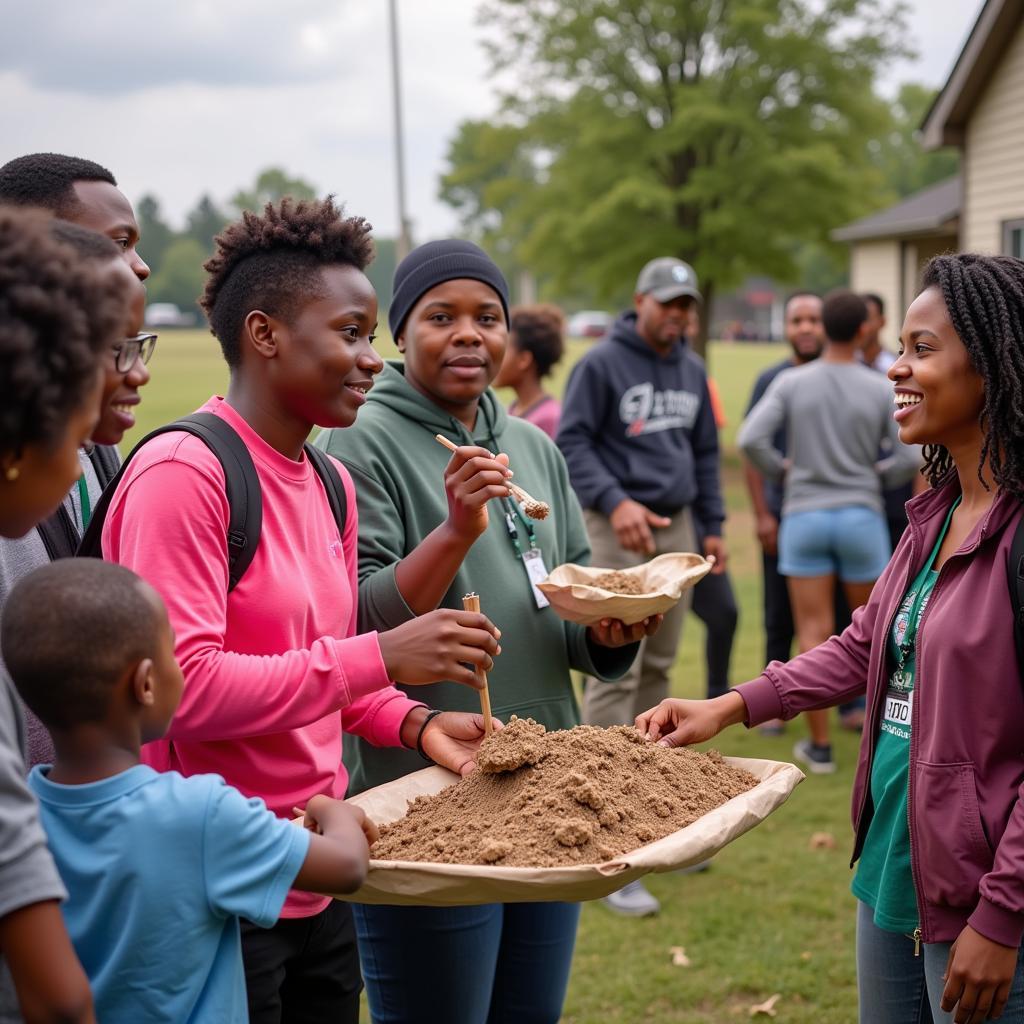Citizenship in society is more than just a legal status; it’s an active and ongoing commitment to the community we live in. It involves understanding our rights and responsibilities, engaging with local and national issues, and contributing to a positive and thriving society. This pamphlet explores the multifaceted concept of citizenship, from its core principles to practical applications.
What Does Citizenship in Society Really Mean?
Citizenship embodies a sense of belonging, shared identity, and mutual responsibility within a community. It’s about understanding the social contract that binds us together and actively contributing to its betterment. This includes respecting the law, participating in civic processes, and showing consideration for our fellow citizens. A strong sense of citizenship fosters social cohesion and strengthens the fabric of society.
The Rights and Responsibilities of Citizens
Citizenship in society grants individuals certain fundamental rights, such as freedom of speech, assembly, and religion. These rights are essential for a just and equitable society. However, with these rights come responsibilities. We have a duty to uphold the law, respect the rights of others, and contribute to the common good. This balance of rights and responsibilities is the cornerstone of a functioning democracy.
- Right to Vote: Exercise your right to choose your representatives and influence political decisions.
- Right to Education: Pursue education and acquire knowledge to become informed and engaged citizens.
- Responsibility to Obey Laws: Respect and adhere to the laws of the land to maintain order and stability.
- Responsibility to Participate in Civic Life: Engage in community activities, volunteer your time, and participate in public discourse.
 Citizenship Responsibilities Illustration
Citizenship Responsibilities Illustration
Different Types of Citizenship
Citizenship can be acquired through birthright (jus soli) or descent (jus sanguinis), and in some cases, through naturalization. Beyond legal status, there’s also the concept of global citizenship, which transcends national borders and emphasizes our shared humanity and responsibility to address global challenges. Understanding these different types of citizenship broadens our perspectives and fosters a sense of interconnectedness.
How Can You Be a More Active Citizen?
Active citizenship doesn’t require grand gestures. It starts with small, everyday actions that collectively make a big difference. Educate yourself about local and national issues, participate in community discussions, volunteer your time for a cause you believe in, or simply show kindness and respect to those around you. Every act of engagement, no matter how small, contributes to a stronger and more vibrant society.
Engaging with Local and National Issues
Staying informed about current events and engaging in thoughtful discussions are crucial aspects of active citizenship. Participate in local town hall meetings, join community organizations, or write letters to your elected officials. By voicing your opinions and concerns, you contribute to the democratic process and help shape the future of your community.
What are some ways to engage with local issues? Attend community meetings, join neighborhood watch groups, or volunteer for local initiatives.
 Community Engagement Activities
Community Engagement Activities
The Impact of Active Citizenship on Society
Active citizenship is the driving force behind positive social change. It empowers individuals to become agents of change, address societal challenges, and build stronger, more resilient communities. When citizens are actively involved, societies are more likely to be democratic, just, and equitable.
“Active citizenship is not just about voting; it’s about actively shaping the world around you,” says Dr. Maria Sanchez, Professor of Sociology at the University of California, Berkeley.
Citizenship in Society Pamphlet: Conclusion
Citizenship in society is a dynamic and evolving concept. It requires ongoing engagement, critical thinking, and a willingness to contribute to the common good. By understanding our rights and responsibilities, embracing our shared humanity, and actively participating in civic life, we can build a more peaceful, just, and prosperous world for all.
“Citizenship is not a spectator sport; it requires active participation and a commitment to making a difference,” adds Dr. James Lee, Director of the Institute for Civic Engagement.
FAQ
- What is the difference between a citizen and a resident?
- How can I become a citizen of my country?
- What are the benefits of being an active citizen?
- What are some examples of civic responsibilities?
- How can I get involved in my local community?
- What is global citizenship?
- How can I teach my children about citizenship?
Need more support? Contact us at Phone Number: 02043854663, Email: [email protected] or visit our address: Khu 34, Bac Giang, 260000, Vietnam. We have a 24/7 customer service team.